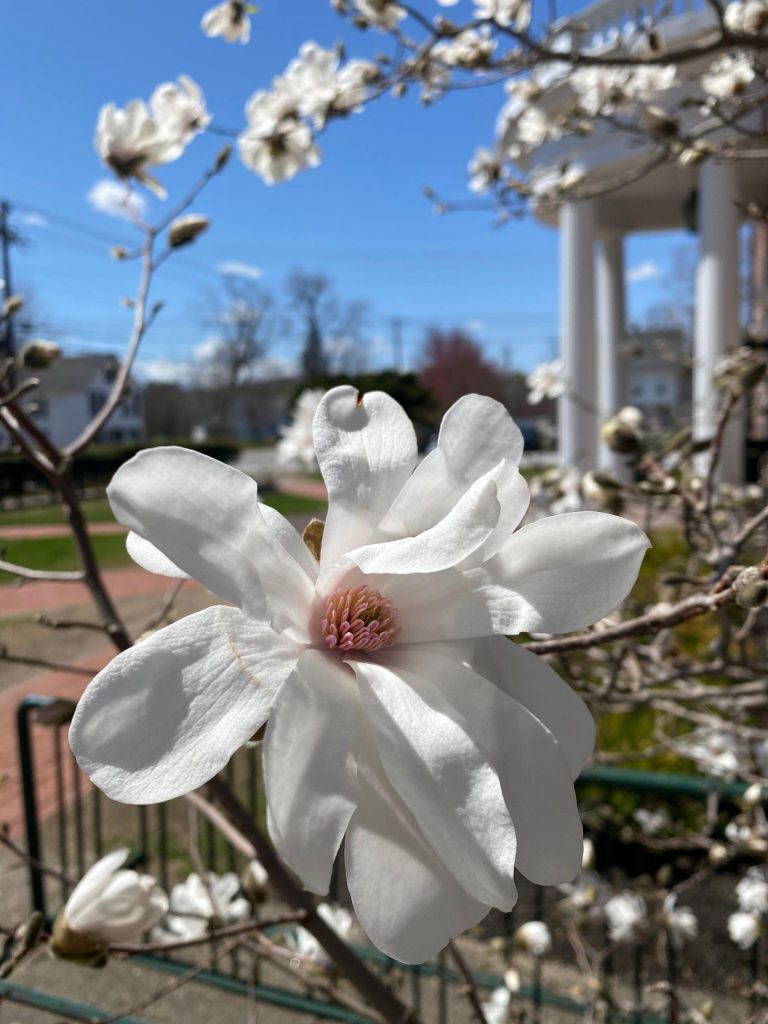
The weather on April 14 was just about perfect: sunshine, 70 degrees, no black flies. The only problem? We were in Phase 1 quarantine at Proctor due to a diagnosed Covid-19 case on campus. Proctor has had a handful of cases on campus this spring resulting in close contacts needing to quarantine and the entire community shifting operations while we identify those contacts. Each shift to Phase 1 resulted in remote classes, meals with dorms, and limited access to campus by Day Students. This Phase 1 reality can be difficult, and yet at this point in the pandemic, we are refining our appreciation of stoic philosophy and becoming quite adept at identifying what lies in our control and what does not.

We are unable to control much that surrounds us related to COVID-19: we can wear our masks, social distance, get vaccinated, be cautious, set up and enforce strict guidelines on campus, but that’s about it. When COVID-19 makes its way onto our campus, we must tighten our restrictions in order to prevent its spread both within our population and into the greater Andover community.
Weeks like this are disruptive, an emotional rollercoaster, but they simultaneously serve as a powerful reminder that we so often operate under the mere illusion that we have control over everything in our lives.
On July 8, 2020, Ryan Holiday wrote a piece for Gaping Void titled We Only Control How We Respond. At the time we were only only four months into this pandemic, and his wisdom seemed novel. Our stamina had not yet truly been tested. We thought we had reached our threshold of isolation, shifting of plans, and disappointment on what could have been.
But we were wrong, and it is time to revisit Holiday’s advice eight months later. He writes, “So you’re stuck. That’s not your fault. That’s out of your control. But what you do while you’re stuck? That’s on you. That’s what the Stoics meant when they said over and over that you don’t control the world around you, you only control how you respond.
“That’s what Marcus was talking about when he said that the impediment to action can actually advance action. And that’s where we are right now. Faced with a choice. A choice to use this or not. To make something of it or not. It’s the only potential silver lining … and it’s totally in your control.”
It is complex and hard-to-hear advice for us to process as adults, even harder for adolescents. But as Holiday references in his piece, nearly 2,000 years ago Stoic philosopher Epicetus implored those around him to take the stoic approach to situations: “The chief task in life is simply this: to identify and separate matters so that I can say clearly to myself which are externals not under my control, and which have to do with the choices I actually control. Where then do I look for good and evil? Not to uncontrollable externals, but within myself to the choices that are my own.”
This is what our dorm pods chose to do when we were in Phase 1. Push aside that which was out of their control and grab hold of what this bizarre week offered them (time together, outside, being kids). Mary Lowell Stone dorm headed down to the swinging bridge with a goal of dislodging a fallen tree that had washed downstream and wedged itself under the bridge. Despite the frigid water, they worked together and helped it break free.
King House tackled the Proctor Ski Area (in shorts). Rulon and Carr House threw batting practice to each other, and rumors are that Head of School Mike Henriques got in a few swings alongside them. It is what our Day Students are doing as we see them cycling by campus and running trails, making the most of the extra unplanned time they have right now.
Tonight it might snow; the one predictable thing about April in New Hampshire is its very unpredictability. And guess what? It’s outside our control. We can hope and wish that it would not. We can curse it as it falls on the fields that have never been so playable in early April, but we have no control over whether or not we wake up to a temporarily white campus in the morning.
We can only control how we respond. We can go sledding one more time, have a snowball fight, or simply walk around appreciating the unexpected gift of contrasting white on the colorful blossoms of early April. We have a choice and because we are surrounded by so many others who choose hope, it’s pretty easy to join this community’s relentless pursuit of hope.